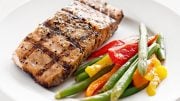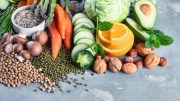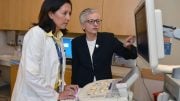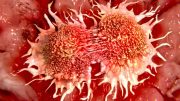
The study found that a healthy plant-based diet could reduce breast cancer risk by 14%.
Research shows that diet quality is important in the prevention of breast cancer
There is evidence that the foods we eat can affect how likely we are to develop cancer, but it’s not always clear which foods or dietary habits are most effective in lowering cancer risk. The quality or general healthiness of a person’s food may be crucial, according to the findings of a recent study.
A healthy plant-based diet was found to be associated with a 14% lower risk of breast cancer while an unhealthy plant-based diet was associated with a 20% higher risk, according to the study, which was based on data from over 65,000 postmenopausal women who were followed for more than two decades. Across all breast cancer subtypes, the findings were similar.
“These findings highlight that increasing the consumption of healthy plant foods and decreasing the consumption of less healthy plant foods and animal foods might help prevent all types of breast cancer,” said Sanam Shah, a doctoral candidate in the Center for Research in Epidemiology and Population Health at Paris-Saclay University, Inserm, Gustave Roussy, France, the study’s lead author. Shah presented the findings at NUTRITION 2022 LIVE ONLINE, the flagship annual meeting of the American Society for Nutrition that was held from June 14th to 16th.
Numerous dietary patterns, including the Western diet, the Mediterranean diet, and vegetarian diets, have been the subject of prior research looking at cancer risks. Although some studies claim diets with little to no meat intake are beneficial, the evidence is rather contradictory. In the new study, researchers concentrated on differentiating between plant-based foods that were classified as less healthy, such as fruit juices, refined grains, potatoes, sugar-sweetened beverages, and desserts, and healthy plant-based foods, such as whole grains, fruit, vegetables, nuts, legumes, vegetable oils, and tea or coffee.
“What is different about our study is that we could disentangle the effects of the quality of plant foods, which has not been the focus of previous studies on other dietary patterns,” said Shah. “By scoring healthy, unhealthy, and animal-based foods, we comprehensively analyzed food intake by considering the ‘healthiness’ of food groups.”
The researchers analyzed data from 65,574 postmenopausal women living in France who filled out dietary intake questionnaires in 1993 and 2005 and were followed for an average of 21 years. Over the course of the study, 3,968 study participants were diagnosed with breast cancer. Comparing breast cancer rates among women with different dietary quality revealed significant differences in cancer risk among those with healthy and unhealthy diets.
The researchers used 18 food groups to categorize the degree to which participants adhered to a plant-based versus animal-based diet and ate healthy versus less healthy foods. Shah noted that a plant-based diet does not equate to a vegan or vegetarian diet, but rather describes a general emphasis on plant-based foods over animal-based foods.
While the findings suggest that choosing healthy plant-based foods is likely helpful for cancer prevention, Shah noted that more research is needed to assess the connections between diet and cancer risk in diverse populations, in particular, to determine causality.
Meeting: NUTRITION 2022 LIVE ONLINE









Be the first to comment on "A Healthy Plant-Based Diet Can Reduce Cancer Risk for Middle Aged Women"